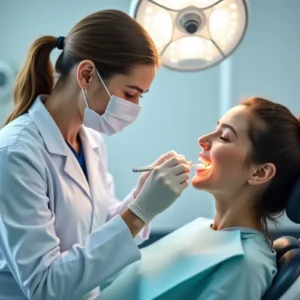Blue light is a crucial component of the visible light spectrum. It’s emitted by the sun and digital devices that use LED technology, such as computers, tablets, and phones. The main concern is that exposure to high levels of blue light during the day can lead to eye strain, insomnia, and sleep disruption. It can also cause several other health problems, including a higher risk of macular degeneration and cataracts.
Reduce Eye Strain
Using the best blue light blocking light bulbs can reduce eye strain and improve the quality of your sleep. They are a safe and effective way to combat digital eyestrain from spending too much time in front of screens. Blue light is one of the most prevalent lights emitted from electronic devices such as computers, smartphones, and TVs. It is a high-energy visible (HEV) light with a short wavelength and scatters more quickly than other colors in the visible spectrum. This type of lighting causes a lot of eye strain when used for extended periods. Symptoms of digital eyestrain include blurry vision, dry eyes, headaches, neck pain, and difficulty focusing. You may also experience glare when looking at computer screens, mainly if a window is directly in front of your screen. Glasses that filter out glare can help reduce eye strain and improve productivity.
These glasses come in various colors and tints, but most have a yellow or amber-embedded tint that helps absorb the blue light. They are designed to block a specific range of high-energy blue light emitted from artificial sources. Blue light-blocking glasses are typically used for nighttime because your body’s natural circadian rhythm is most disrupted. The blue light emitted from electronic screens can also affect your body’s natural melatonin production and sleep quality.
Sleep Better
Blue light emitted from electronic devices and fluorescent lights can have a negative impact on our sleep quality. The short wavelengths of blue light can disrupt our circadian rhythm, causing us to become more alert and less sleepy at night. The problem with blue light is that it suppresses our production of melatonin, a hormone that regulates sleep and keeps our bodies on track. Exposure to artificial blue light can cause various problems, including sleep apnea and age-related macular degeneration.
To minimize exposure to artificial blue light, consider limiting your time using electronic devices (especially before bed) and dimming or switching off your home lighting sources at night. If you need to use an electronic device before bed, try using it on a lower screen size or viewing it from a distance. Alternatively, switch to an app that adjusts the screen color to fit your mood and decrease your blue light exposure. If you are looking for a way to block the effects of blue light, consider a low-blue-light LED bulb. These bulbs are designed to block harmful blue light and improve sleep quality. They are suitable for homes, offices, and public spaces that require low-blue-light lighting solutions. You can also try amber-tinted glasses, which can help reduce the effects of blue light on your melatonin levels.
Improve Circadian Rhythms
A good night’s sleep can make all the difference when it comes to keeping you healthy and able to do more of what you love. Blue light may be the king of the nighttime lighting throne, but it can also cause severe sleep disruptions. High-energy blue light can suppress the release of the hormone melatonin, which is essential for maintaining our natural sleep cycle. The good news is you can improve your circadian rhythm without turning on the lights. This is achieved using blue light-blocking light bulbs and lamps, readily available in both amber and red hues. The best part is that you can buy them at a reasonable price. Using blue light-blocking lighting can be an effective way to improve your sleep quality while not hindering productivity or mood. They are available in all shapes and sizes, so you can be sure to find one to suit your home or office. The best part is picking up a pair for less than an average cup of coffee.
Increase Energy
In addition to reducing eye strain, blue light-blocking light bulbs can increase your energy levels. They are designed to mitigate exposure to high bioactive blue wavelengths during the daytime without blocking it completely, so you’ll feel more alert and refreshed. This is especially important for people who spend a lot of time on computers, smartphones, and other devices. They are often exposed to blue light for hours, causing digital eye strain and other health issues. While most LED and fluorescent light bulbs give off a lot of blue light, there are coatings available that reduce the number of blue wavelengths and provide a more red, warm glow. This can help your body get into a better rhythm and make it easier for you to fall asleep. You can use blue light-blocking light bulbs in your bedroom and other rooms you spend a lot of time in before going to bed, like the living room or office. You can also buy blue light filtering glasses designed to lessen your exposure to blue wavelengths while on a computer, smartphone, or tablet. Another way to reduce your blue light exposure is to turn off electronics 2 to 3 hours before sleep. This can be especially helpful for shift workers and “night owls” who stay late some nights. It can also help you regulate your circadian rhythm to wake up and go to bed consistently daily.



